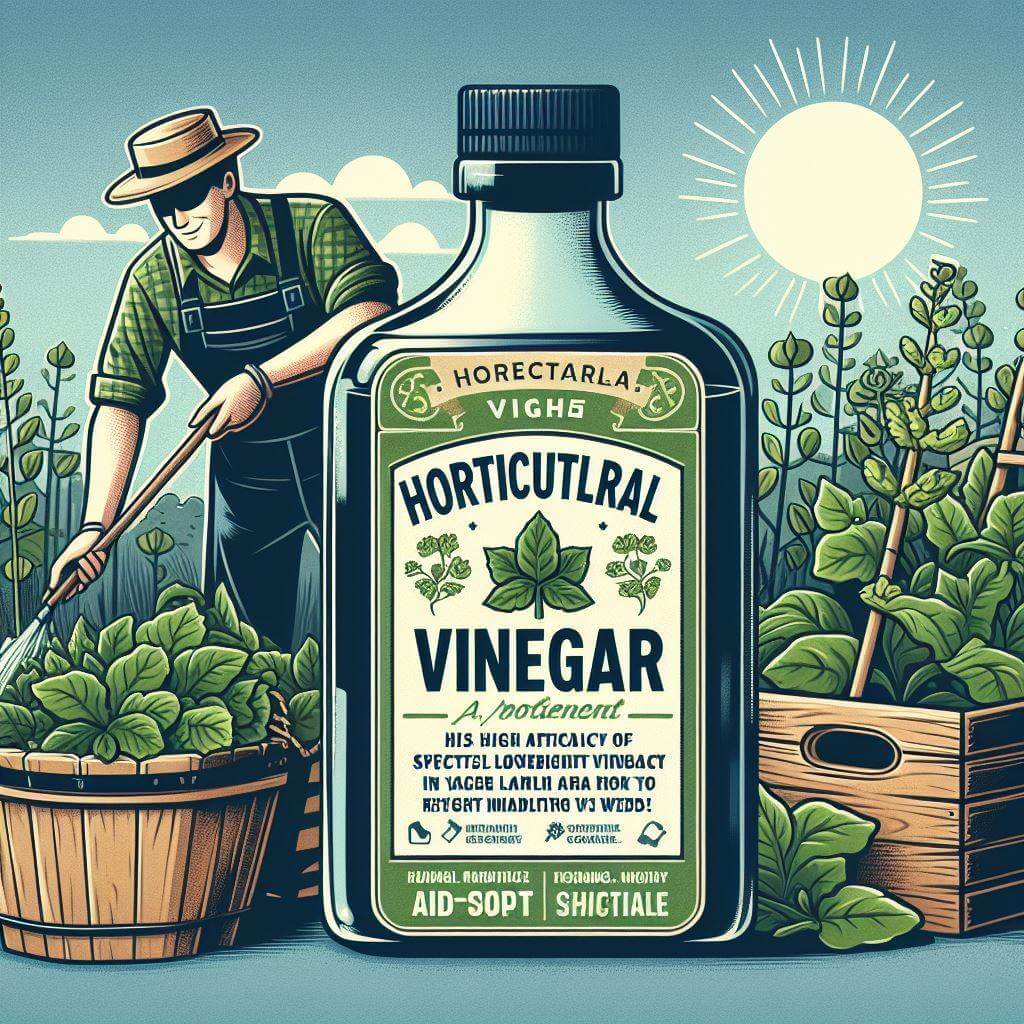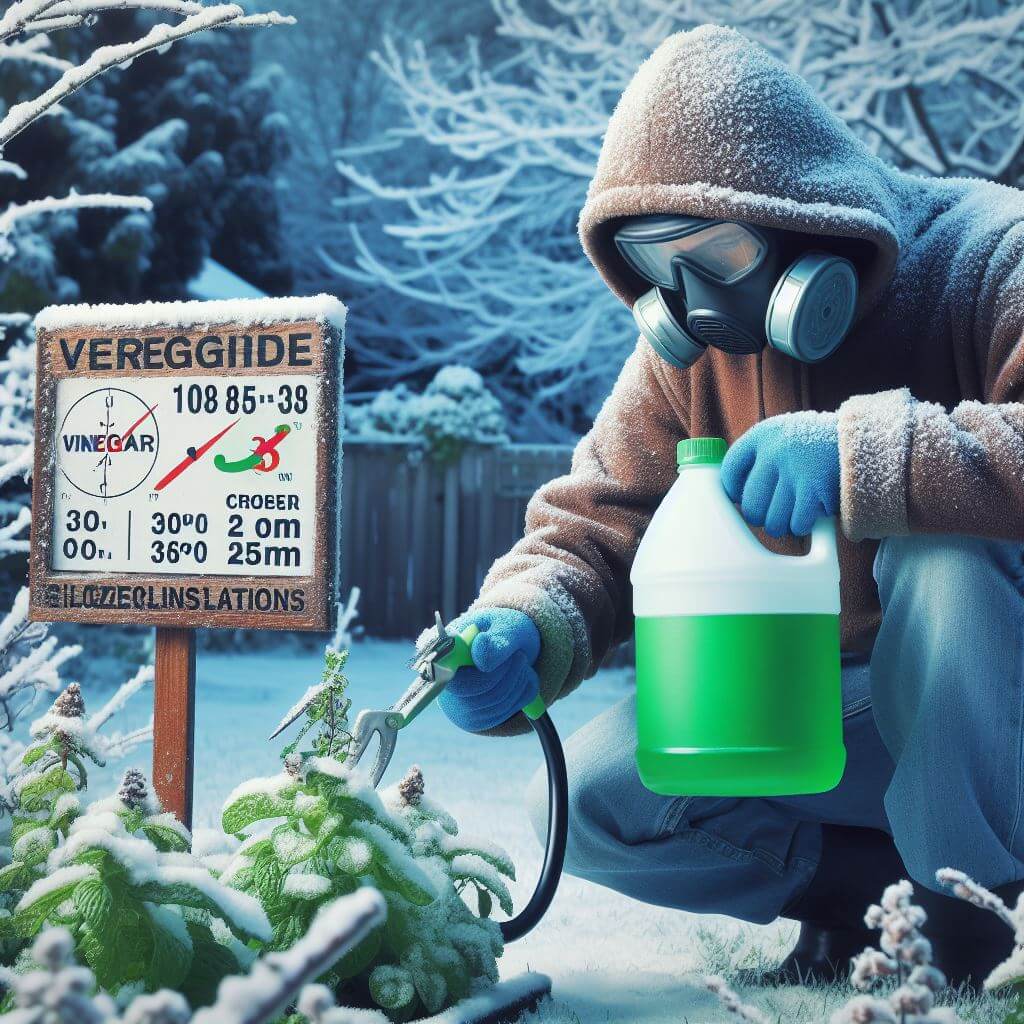- Home
- Organic Weed Killer
- Vinegar Weed Solutions for Cold Climate
vinegar weed solutions for cold climate-The Ultimate Weed Solution Seasonal Application Guide in cold weathers
When tackling weed control in cold climates, natural solutions often come to mind, especially vinegar. Its effectiveness isn't just folklore; it's grounded in science. However, not all vinegars are created equal, and their success in weed killing heavily relies on how and when they are applied.
This guide will walk you through the essentials of using vinegar in cold climates to keep your garden weed-free, balancing eco-friendliness with efficiency.
Warm temperatures often aid in the effectiveness of natural weed control methods, but cold climates present unique challenges. With the right knowledge and techniques, vinegar can be a powerful ally in your gardening arsenal.
Understanding the types of vinegar and their application timing can significantly enhance their weed-killing power, even when the mercury drops. Let's dive into how vinegar can be your go-to solution for maintaining a pristine garden in colder regions

Understanding the Power of Horticultural Vinegar
Horticultural vinegar is a potent natural product designed specifically for gardening. Its high acidity levels make it far more effective than household vinegar in combating weeds. Harnessing this natural power responsibly can yield impressive results in your garden.
1. The Science Behind Vinegar as a Weed Killer
In gardening, vinegar works by killing weeds through its acetic acid content. When mixed with dish soap, it sticks to weed leaves better, ensuring the vinegar directly contacts and kills the weeds. Always protect your skin when handling stronger weed killers like vinegar.
Why Acidity Matters: Selecting the Right Vinegar
Acidity is the key to vinegar's effectiveness as a weed killer, with horticultural vinegar leading the pack due to its higher acetic acid content. This specialized vinegar is designed for use in gardens and targets weeds aggressively without unnecessary harm to the surrounding plants when used correctly.
2. Horticultural Vinegar vs. Household Vinegar
While horticultural vinegar is a powerful natural organic option for landscaping and getting rid of weeds, household vinegar can also be used in a homemade weed solution. You create an organic garden-friendly spray by mixing vinegar with natural organic ingredients and water in a spray bottle. However, horticultural vinegar is more effective for tougher jobs.
When and How to Use Each Type for Maximum Effectiveness
Direct contact with their leaves and root system is crucial for perennial weeds or tough invaders like Canada thistle. Horticultural vinegar, due to its higher acidity, is best used here. Household vinegar is more suited for young weeds and weed seeds near the surface. Apply vinegar solutions when the weed directly contacts the vinegar for maximum effectiveness.
Practical Application Tips for Cold Climate Gardens
Using vinegar as an herbicide in cold climates requires careful attention to label instructions and timing to ensure effectiveness. The cooler weather demands strategic application for the best results.

Timing Your Vinegar Application: When to Strike
For vinegar, as an herbicide to be effective in cold climates, adhering to label instructions and choosing the right time for application is key. Early spring or late fall, when temperatures are mild, can be ideal times to tackle weeds.
Adapting Strategies for Cold Weather Challenges
In cold climates, applying vinegar-based solutions requires a bit more strategy. The reduced number of warm, sunny days means you'll need to choose your application days carefully to ensure the vinegar has enough time to act on the weeds. Additionally, repeated applications might be necessary to achieve the desired results, as cooler temperatures can slow down the weed-killing process.
Combining Vinegar with Other Natural Weed Control Methods
Incorporating gardening techniques from the State University Extension and the University of Maryland Extension, vinegar stands out as an effective weed killer and a viable alternative to glyphosate. When combined with other natural methods, its effectiveness increases, offering a robust solution for weed management.
Citrus Oil and Vinegar: A Potent Mix for Stubborn Weeds
For particularly stubborn weeds, combining citrus oil with vinegar creates a potent mixture that enhances the weed-killing power of vinegar. This combination disrupts the weed's outer layer, allowing the vinegar to penetrate more effectively and kill the weed from the inside.
The Role of Diligence in Weed Management
Effective weed management, especially in cold climates, requires diligence and a commitment to regular maintenance. Utilizing organic herbicides and integrated pest management strategies can significantly reduce weed populations over time.
Keeping Records: The Key to Long-Term Success
Maintaining detailed records of your use of organic herbicides, including vinegar, enables you to track progress and refine your strategies for better results in future seasons.
Monitoring Progress: What to Look for After Application
After applying vinegar or other organic herbicides, it's important to monitor the treated area for signs of success, such as weed discoloration and death. Observing how different weeds respond can help you adjust your approach for more effective weed control.
Multi-Pronged Approaches: Beyond Vinegar
While vinegar is a powerful tool in the fight against weeds, employing a multi-pronged approach that includes mechanical removal and barrier methods can enhance your garden's defense against unwanted plants. Combining these strategies offers the best chance for maintaining a healthy, weed-free garden.
Mechanical Removal and Barrier Methods as Complementary Strategies
Keeping weeds at bay in your garden requires more than just one method. Mechanical removal, such as pulling weeds by hand or using tools, targets the roots, ensuring they don't grow back quickly. Barrier methods, like mulching or using landscape fabric, prevent sunlight from reaching the soil, stopping the growth of weeds. Both strategies, when used with vinegar solutions, create a powerful defense, helping you maintain a healthier garden with fewer chemicals.
Advanced Considerations for Vinegar Use in Gardening

As you become a master gardener, understanding the nuances of using vinegar in your garden is crucial. It's not just about pouring it onto the weeds. The timing, concentration, and type of vinegar all play significant roles in its effectiveness.
1. Safeguarding Your Garden's Ecosystem
Using vinegar wisely is key to protecting your garden's ecosystem. It's potent, so it's important to apply it carefully to avoid harming beneficial organisms in the soil.
Understanding Vinegar's Impact on Soil Health and Beneficial Organisms
Vinegar can be a powerful tool in your gardening arsenal, but it's important to use it thoughtfully. While vinegar is effective at killing weeds, it can also lower the soil's pH and affect its health if used excessively. Beneficial organisms, like earthworms, that contribute to a healthy garden ecosystem can be harmed by too much vinegar. Therefore, it's crucial to apply vinegar in a targeted manner, avoiding overuse to protect these vital garden helpers.
Legal and Environmental Guidelines to Consider
Before you start using vinegar in your garden, it's important to know any local regulations. Some places have strict rules about what you can use outside.
Navigating Regulations: What Gardeners Need to Know
Every gardener needs to be aware of the legal and environmental guidelines governing the use of vinegar as a weed killer. In some areas, the use of certain chemicals, even natural ones like vinegar, may be regulated to protect local ecosystems. Always check with your local environmental protection agency to ensure compliance with regulations. This ensures that your gardening practices are not only effective but also environmentally responsible.
Gathering Insights from the Community
Learning from other gardeners can provide valuable insights into effective weed management. Many have found success by combining vinegar with other natural methods. For example, a mixture of vinegar, 1 cup salt, and soap as a surfactant can enhance the vinegar's weed-killing power. Engaging with community forums or local gardening clubs can offer new tips and tricks, helping you refine your approach to keeping your garden weed-free.
Real-Life Success Stories: How Gardeners are Winning the Weed War
Many gardeners have shared their success stories, highlighting how they've managed to control weeds with vinegar and other natural methods.
Content from OSU Extension Service: Trusted Advice and Tips
The OSU Extension Service is a great resource for gardeners looking for tried and true advice. They offer tips on the best times to apply vinegar solutions, how to mix them for maximum effectiveness, and which types of weeds are most susceptible. Their guidance can help you use vinegar more effectively, ensuring that you tackle even the toughest annual weeds without harming your garden.
Wrapping Up: Achieving a Weed-Free Garden in Cold Climates
Achieving a weed-free garden in cold climates is possible with the right strategies. Using vinegar solutions wisely, along with mechanical removal and barrier methods, can keep your garden healthy and vibrant. Remember to wear protective clothing when handling vinegar solutions and to monitor the growth of weeds closely after application. With patience and diligence, you can control weeds and enjoy a thriving garden.
Summary of Key Takeaways
Effective, eco-friendly weed control is within your reach. Remember, timing and the right mix of methods are key.
The Journey Towards Effective, Eco-Friendly Weed Control
The path to a weed-free garden is both a science and an art. By understanding the active ingredients in vinegar and how they affect different types of weeds, you can create a potent vinegar solution to combat weeds. Combining this knowledge with mechanical and barrier methods enhances your weed control strategy. Stay informed, stay persistent, and your garden will thrive, even in the coldest climates.